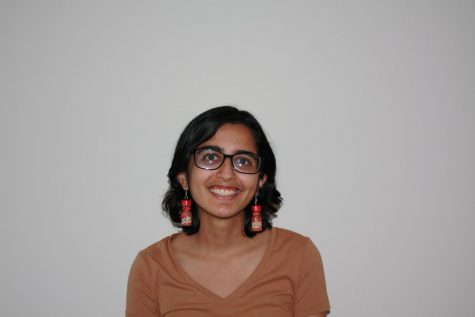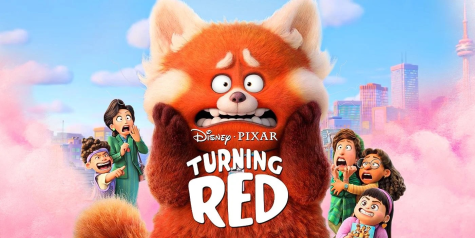The ideological division between immigrants and their children
Values are something that are derived from both family and community influence. When these two fields of influence contradict, it can be difficult to figure out where you stand. My parents carry mainly traditional Indian beliefs due to their upbringings in small villages surrounded by like-minded people, but I grew up in the Bay Area surrounded by people upholding Western values. I adopted these values in a way my parents never managed to, despite decades in this country.
Indian values tend to be more family-oriented and emphasize respect for elders. I disagree in the way this mindset is enforced. I don’t like the fact that I’m expected to go along with whatever my relatives say because they’re older than me. What stands out to me is when my uncle made rude comments towards me when I was 12 years old, and my mother didn’t say a word in my defense. Later, in private, she apologized to me and said that she had wanted to say anything, but it wasn’t right to argue with her older brother, even to defend me. It was an incredibly frustrating experience, one that made it clear to me how much my parents and I didn’t see eye to eye about our beliefs.
I don’t exactly align with all aspects of American ideals either. Where Indian values center around family and community, Americans are a lot more individualistic and about personal freedom. There is no better example of this than the response to COVID. It’s no wonder that our cases keep rising when Americans place so much value on personal freedom and will fight anything they believe even remotely challenges their rights. This inability to break out of the individualistic mindset is very uniquely American.
My own values fall somewhere in between Indian and American ones. Beyond just beliefs, my entire identity feels somewhere in between, a unique perspective only shared by other second generation immigrants. I’ve lived my whole life in the United States, but there’s always been that little part of me that felt slightly out of place. I travel to India a lot too, the home of my family and our history, but I can’t help but feel like a foreigner, an outside observer of people that I don’t belong to.
Growing up, this feeling of not belonging anywhere had a huge effect on my self esteem. Like so many children of immigrants, I learned to be ashamed of who I was. Being Indian was the first thing I was ever insecure about. As much as I hate to admit it, I wanted to be white. That’s something that’s impossible to understand if you grew up like my parents did, in a country where you looked like everyone else instead of having to deal with racism when you were too young to even understand the concept.
As I grew older, I learned how to use these struggles to grow more secure in my identity. I had to learn how to defend my identity in a way my parents never did from a young age. A few months ago, my siblings and I were talking about the ever-growing presence of racism towards South Asians on social media. Stereotypes made to ridicule us, people telling us to “go back to our country.” My parents’ reaction to the conversation both surprised and frustrated me. They thought we were making a big deal out of nothing. They said we should ignore it, not let it affect us. I was angry that they weren’t angry. This has become an increasingly clear pattern amongst immigrants: a tendency to be more tolerant of racism directed towards them, compared to their children.
This is a significant example of the difference in mindsets. Indian ideals produce more tolerant and rule-abiding people. In comparison, their children’s confrontation and a demand for change is a much more American response. This is also a result of the idea that we, the children of immigrants, feel like the United States owes us something. We are owed fair chances and equal treatment. Our parents, however, would never think to demand all of that from this country. The immigrant mindset is one that tolerates racism because they believe it’s a fair price to pay in order for what they consider the privilege of being here.
Immigrants and their children both have very different experiences growing up. Neither group can ever truly understand the others’ perspective, creating a division in the way they develop their values.









Hirdesh Mishra ~ Feb 4, 2021 at 4:02 pm
Enjoyed the article and came to know about the unique perspective that you have shared. Obviously I could understand it intellectually but it’s difficult for me to actually empathise because it’s a very personal experience.
Hirdesh Mishra ~ Feb 4, 2021 at 4:00 pm
Enjoyed the article and to know about the unique perspective that you have shared.
Cindy Ung ~ Feb 3, 2021 at 12:22 pm
My favorite quote from this article was this: “Beyond just beliefs, my entire identity feels somewhere in between, a unique perspective only shared by other second generation immigrants. I’ve lived my whole life in the United States, but there’s always been that little part of me that felt slightly out of place.”
As a child of immigrant parents, I wholeheartedly empathize with this feeling of in-between-ness. From the way I speak to the way I eat, I feel that I’ll never be wholly “Vietnamese” nor “Chinese” to my parents. I think they still need to accept my mixed cultural identity, which is a beautiful thing to have.
This article will be a place of solidarity to many people. What a genuine, reflective article!
Ms Dudley ~ Feb 2, 2021 at 4:26 pm
Yashvi,
I hear you. I am a daughter of two Filipino immigrants. The thing that really resonated with me is the feeling of not really belonging in either world, Filipino or American. I don’t know tagalog, so when there is a wedding with lots of tagalog speakers, it is awkward. My hair, skin, eyelids, and body shape made it so I could not truly commiserate with my white friends about fashion or makeup (my high school had maybe 10-15 kids in my graduating class that were of Asian descent, of which I was the only Filipino). Most of my friends were Jewish, I’m Catholic. They were heavily involved in their Jewish youth group, which I could not be a part of obviously. This belonging, yet not belonging, is a strange and unsettling feeling.
I enjoyed your article. Keep on expressing yourself and make yourself heard.